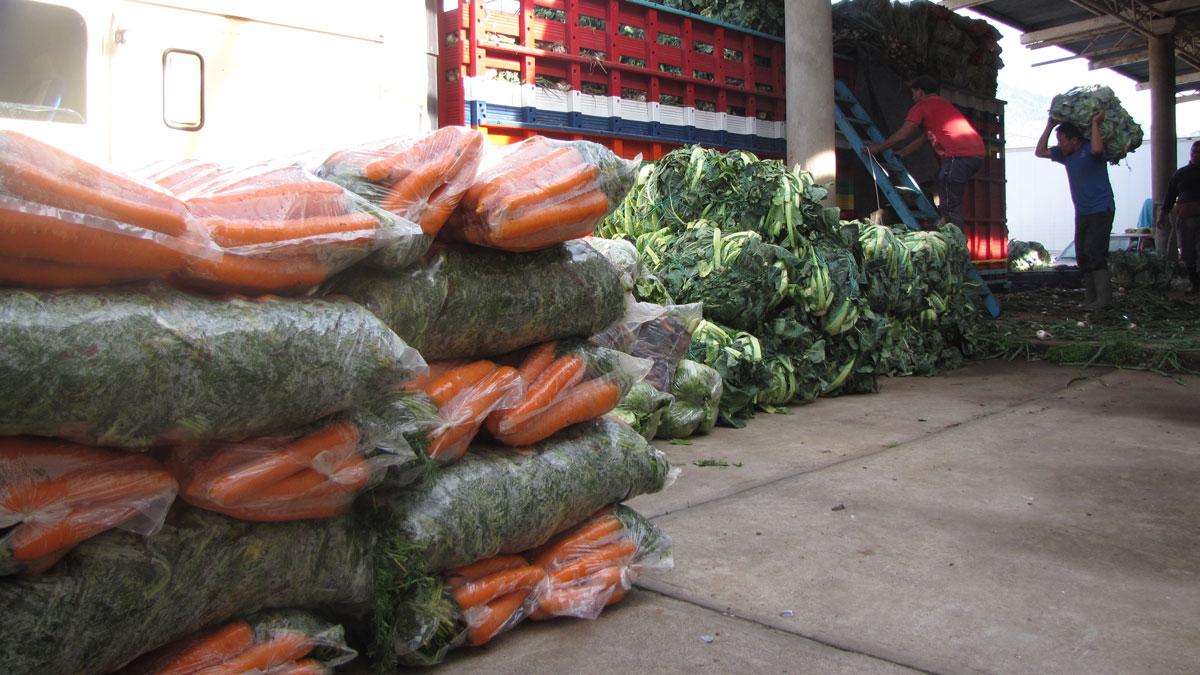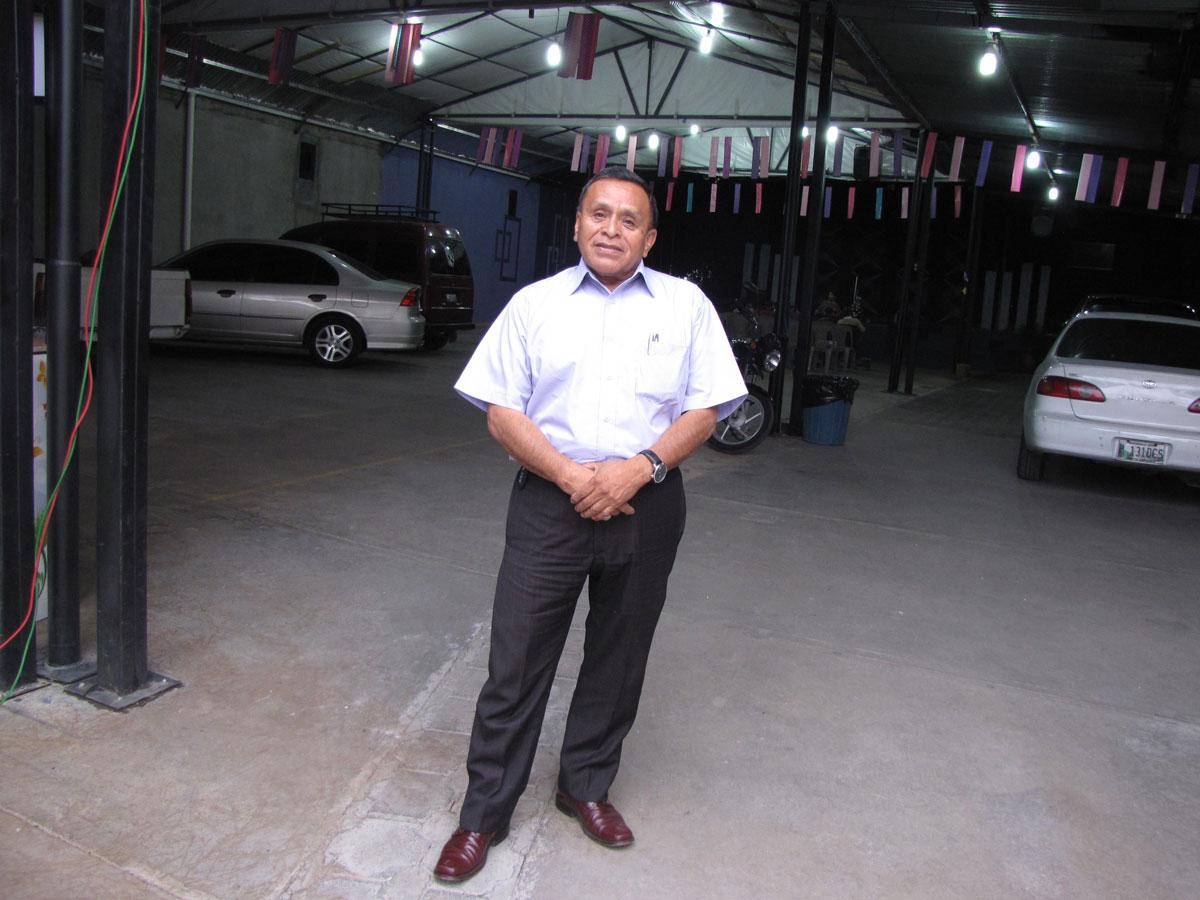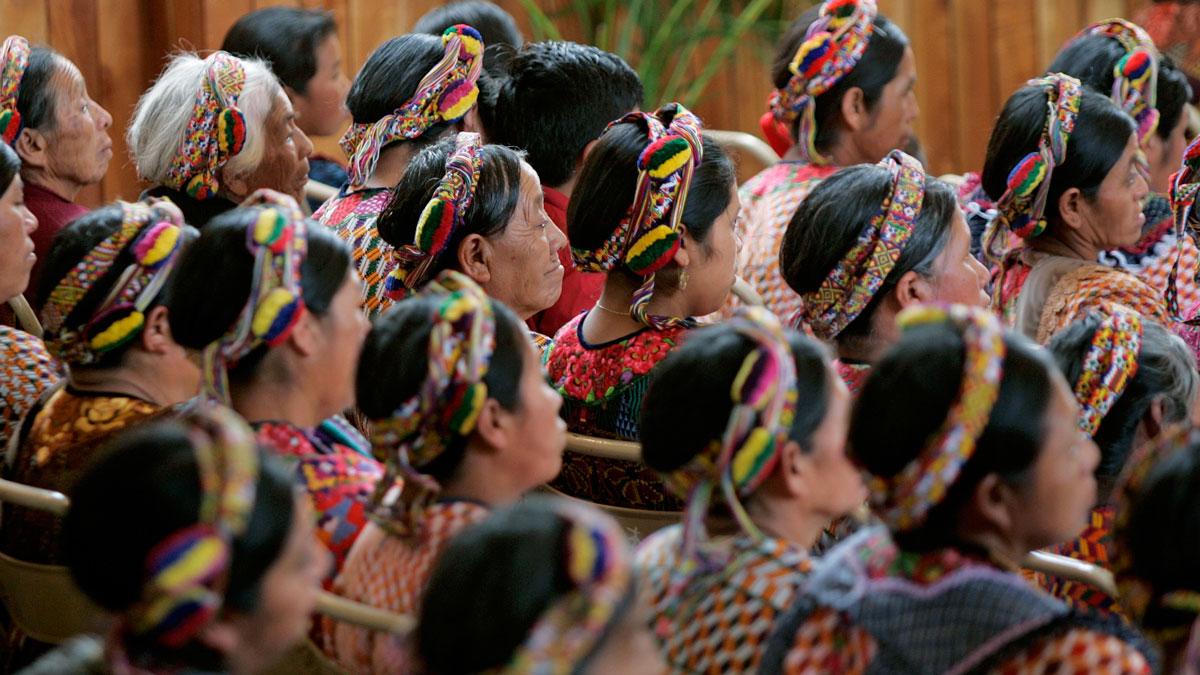Did religion save this Guatemalan town?
Women attend an evangelical church service in Almolonga, Guatemala.
In seeking the evangelical vote, Donald Trump has been shunned by many a pastor put off by his behavior and values.
He hasgotten support, though, among some evangelical adherents of the Prosperity Gospel, who believe that faith can bring material reward.
It’s a controversial idea, but one that’s popular in certain parts of the world. Like Guatemala. That country is reported to be the most evangelical country in the Americas. And, according to the Pew Research Center, it has the highest rate of believers that faith reaps success.
One small mountain town is held up as proof.
On a weekday morning in Almolonga, you’ll find men at loading docks, rushing to transfer vegetables from small pickups to a fleet of 10-wheelers. The greens will take the daylong trip to markets in El Salvador, and from there across Central America.

This is why Almolonga is famous, according to its mayor, Pedro Gonzálo Siquiná Yac.
“Our town is known as the garden of the Americas,” he says. “Eighty percent of the residents plant greens because the earth is so good.”
‘The garden of the Americas’ might be a stretch. Almolonga is a humble-looking, flood-prone town of 25,000. But in evangelical circles, Almolonga and its giant carrots have taken on mythical proportions with a story of redemption.
A few decades ago, locals say, the produce here was piddling, the jails were full, and drunks stumbled through the streets. Now there’s peace and lots of produce.
“I think it’s because of God,” the mayor says.
Siquiná Yac is evangelical, as is most of the City Council. In a town that used to be entirely Catholic, he says there are now a least 25 evangelical churches.
On a Tuesday evening, men in suits and women in their best embroidery file into a church on the main square. It’s brightly lit and the yellow walls are decorated with the flags of countries the pastor has visited. As fireworks explode outside, an MC announces the entry of church VIPs, who stride up the aisle to applause. The energy builds, with singing, choreographed dancing and bottles of Gatorade passed down the rows.
It’s a clear departure from the past, and from what many call a curse that they say still grips the next town over, Zunil. Zunil is largely Catholic and also host to a Mayan shrine, where visitors feed alcohol to the mannequin effigy of a spirit.
And yet, if you cross over into Zunil, you’ll see that it too is bursting with beautiful, big vegetables.
I stop at the family farm of Domingo Tumacaj Garcia, just across the town line. Instead of a scarecrow, he’s erected a cross made of corn husks. He’s a devout Catholic, so I ask what he thinks of Almolongans’ belief that their land is blessed.
He says both towns have the same rich, volcanic soil, but he thinks it’s true that faith might be giving Almolonga a boost.
“Evangelical churches have support from other countries,” he says, “so maybe over there they have that support for exporting or providing jobs, but here in Zunil, we don’t have that.”
While Almolonga exports in bulk to El Salvador, Zunil struggles with high supply, low demand and low prices. Tumacaj Garcia says one town has gotten it together, and the other hasn’t.
In Almolonga, there does seem to be an openness to the outside world. Pastors boast of travels overseas and host special guests from the US and South America. And there are clear links between the evangelical church and the export business — both of which are booming.

Take Pastor José Silverio Sanchez. I meet him in his latest church-to-be. Beams are being welded around what looks like a tent in a parking lot, but services are already being held here.
Silverio Sanchez is a former businessman who, 46 years ago, established a market in El Salvador for Almolongan veggies. He was Catholic at the time but was reborn on one of his business trips, and he became an operator in the evangelical world, opening new churches in a network founded by a famous pastor known as "Cash" Luna.
Silverio Sanchez talks about Almolonga’s rebirth in biblical terms.
“The town was in extreme poverty,” he says. “There was alcoholism, adultery, witchcraft and sorcery. The streets were a mess … The vegetables were tiny. Now the carrots are so big, the cabbage, etc.”
Those vices that supposedly dominated the old Almolonga — especially alcoholism — come up a lot here, among evangelicals who have sworn off booze and complain that Catholics are too permissive.
For another perspective, I visit Almolonga’s Catholic church, where I find Marcos Carrillo. He’s the caretaker and a devout Catholic who lives on church grounds.
I ask about the notion that Catholics drink too much.
“In this church there is liberty,” he says. “They’re not trying to reprimand people. That’s what the evangelicals do, saying God will punish you or something. But here people take advantage of the liberty, so now the idea is to explain that alcoholism doesn’t just affect the one person but it affects the family and society at large.”
There are still some drinkers in Almolonga. There’s still poverty and sickness, and even the occasional flood. But evangelicalism has given many of the town’s residents a powerful identity. One that makes them think the answer to any ongoing problems is simply more of what they’ve already got: evangelical faith.
